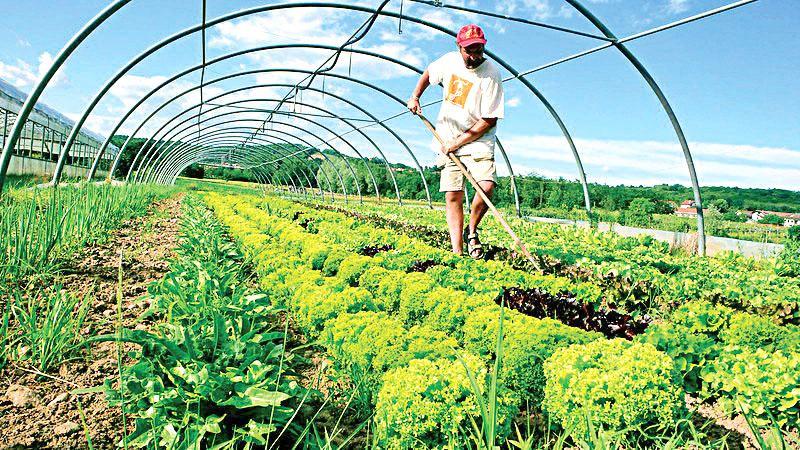
The Government is going all out to achieve 100 percent organic farming and put Sri Lanka on the map to do away completely with chemical fertiliser amid a plethora of challenges.
It aims at being a case study and a catalyst for zero-chemical use in agriculture in the world.
The move received a turbo boost by the tie-up between Colombo Commercial Fertilisers Ltd. (CCFL) and Regina Purpurea Fundus (RPF), a Polish venture capital consortium for a Rs. 12.8 billion organic fertiliser manufacturing project in the country last week.
The funding, technology and technical expertise will be made by the Polish partner while the raw material will be sourced within the country.
Production which will be spread across plants in Trincomalee, Moneragala, Anuradhapura and Hunupitiya is expected to begin within around four to five months following a field study by the Polish entity.
The joint venture aims at producing around 200,000 MT of organic fertiliser per annum for CCFL. The Polish team will look at coming up with fertiliser for all varieties of crops. The project will be backed by a state-of-the-art testing and certifying laboratory to be set up in the country. A comprehensive due diligence study of the investment proposal and funding capacity will be carried out by CCFL with the support of RPF within the next two weeks, said CCFL Chairman Methsiri Wijegunawardana.
Discussions for mutual business development opportunities commenced in 2020 between the Polish Investor Partners Consortium and government representatives and business leaders. The transition to organic fertiliser use across countries has been at a snail pace and in fits and starts in Sri Lanka.
Australia was ranked first with an organic land area of around 35.69 million hectares followed by Argentina and China with 3.63 and 2.22 million hectares in 2019. The Government embarked on the ‘going fully organic’ project initially with a 30:70 organic and chemical fertiliser ratio when it took office and then made a firm decision to go 100 percent in April this year despite resistance from certain sections.
The transition from chemical to organic farming according to agri experts needs time for the soil to get accustomed to the shift.
Agri-sector experts say that the transition should be done gradually with adequate time and training to farmers. According to State Minister of Agriculture Sasheendra Rajapaksa it is the middlemen and not the farmers who are making a hue and cry about the transition. Our famers do organic farming and know well how to produce organic fertiliser.
The Government may be unpopular at the next election but would do what is right and good for the country, Rajapaksa said. Organic farming in Poland is currently around 30 percent but there is a growing demand for organic products in the country, said Founder and President of the Board of RPF, Hubert Drabik.
However, farmers who have neither chemical nor organic fertiliser have taken to the streets demanding for either to make ends meet.
